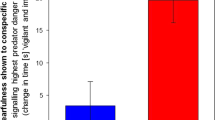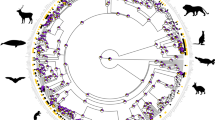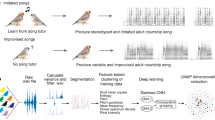Abstract
THE reproductive processes of the field vole, Microtus agrestis, have previously been investigated by Brambell and Hall1. Their material was obtained from animals caught in the wild and they concluded that the vole was polyœstrous and exhibited spontaneous ovulation.
This is a preview of subscription content, access via your institution
Access options
Subscribe to this journal
Receive 51 print issues and online access
$199.00 per year
only $3.90 per issue
Buy this article
- Purchase on Springer Link
- Instant access to full article PDF
Prices may be subject to local taxes which are calculated during checkout
Similar content being viewed by others
References
Brambell, F. W. R., and Hall, K., Proc. Zool. Soc., 109, 133 (1939).
Eckstein, P., and Zuckerman, S., Mem. Soc. Endocrinol., No. 4, 114 (1955).
Chitty, D., “The Numbers of Man and Animals”, edit. by Cragg, J. B., and Pirie, N. W., 57 (Oliver and Boyd, Edin., 1955).
Author information
Authors and Affiliations
Rights and permissions
About this article
Cite this article
CHITTY, H., AUSTIN, C. Environmental Modification of Œstrus in the Vole. Nature 179, 592–593 (1957). https://doi.org/10.1038/179592a0
Issue Date:
DOI: https://doi.org/10.1038/179592a0
Comments
By submitting a comment you agree to abide by our Terms and Community Guidelines. If you find something abusive or that does not comply with our terms or guidelines please flag it as inappropriate.



